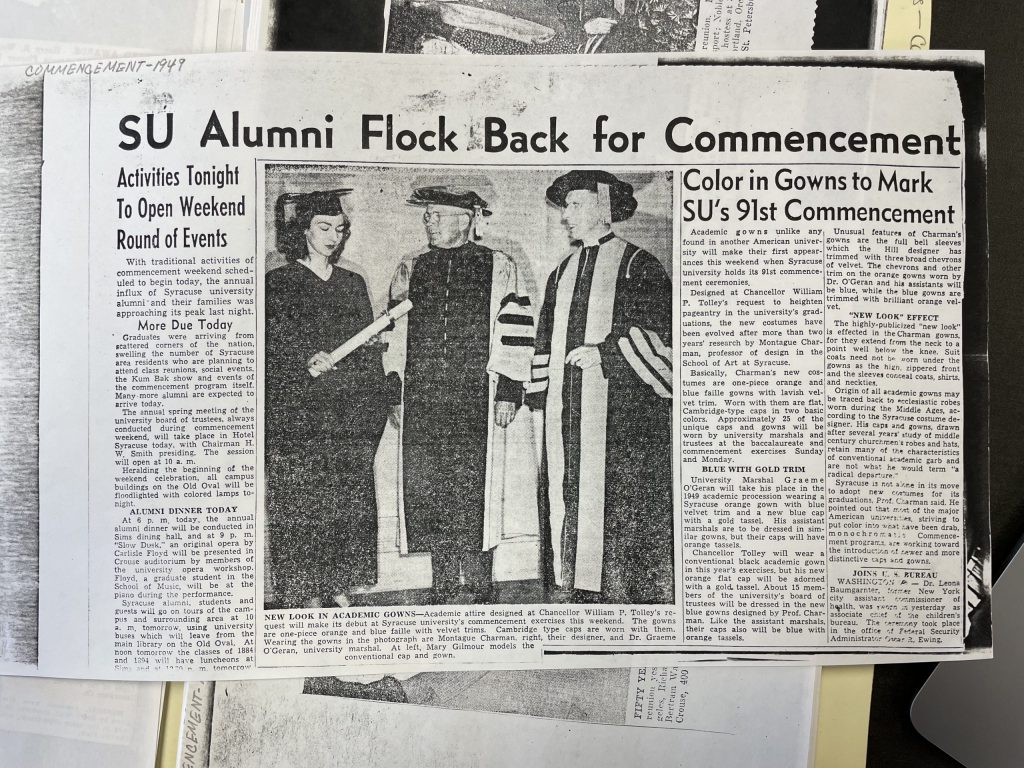The colors of commencement: A brief history
The colors of commencement: A brief history

Ever wonder why each college has a different color tassel?
This weekend is the 2022 commencement at Syracuse University. Students draped in blue and orange will walk across the stage to receive their diplomas, each donning different colored tassels or hoods that signify their program of study.
The first commencement ceremony at SU was held in 1872 but the tradition of wearing a cap and gown was not adopted until 1901. The Academic Costume Code, originally created in 1895, was updated in 1932 to regulate the commencement costume colors that would be used across the country. This code assigned colors to each discipline using Columbia University as the template.
The code stated the gowns must be black while hoods and tassels signify the color of the degree. Some of the original colors designated in the code from 1895 are still used for commencement regalia today.
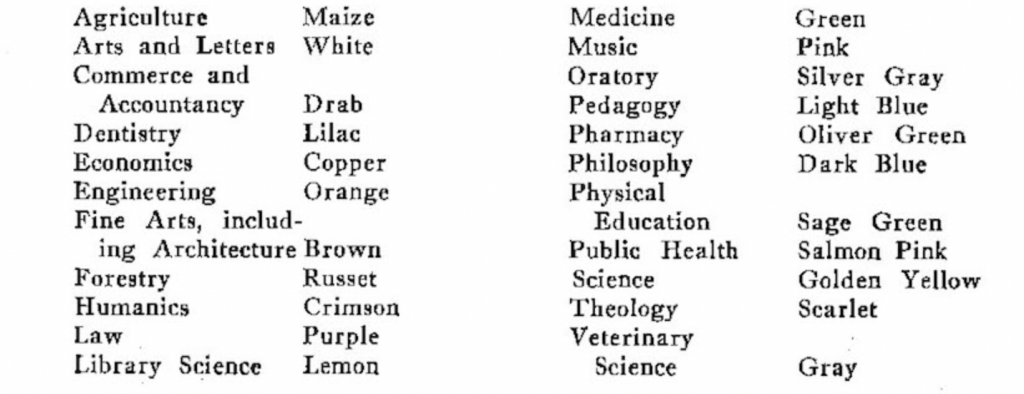
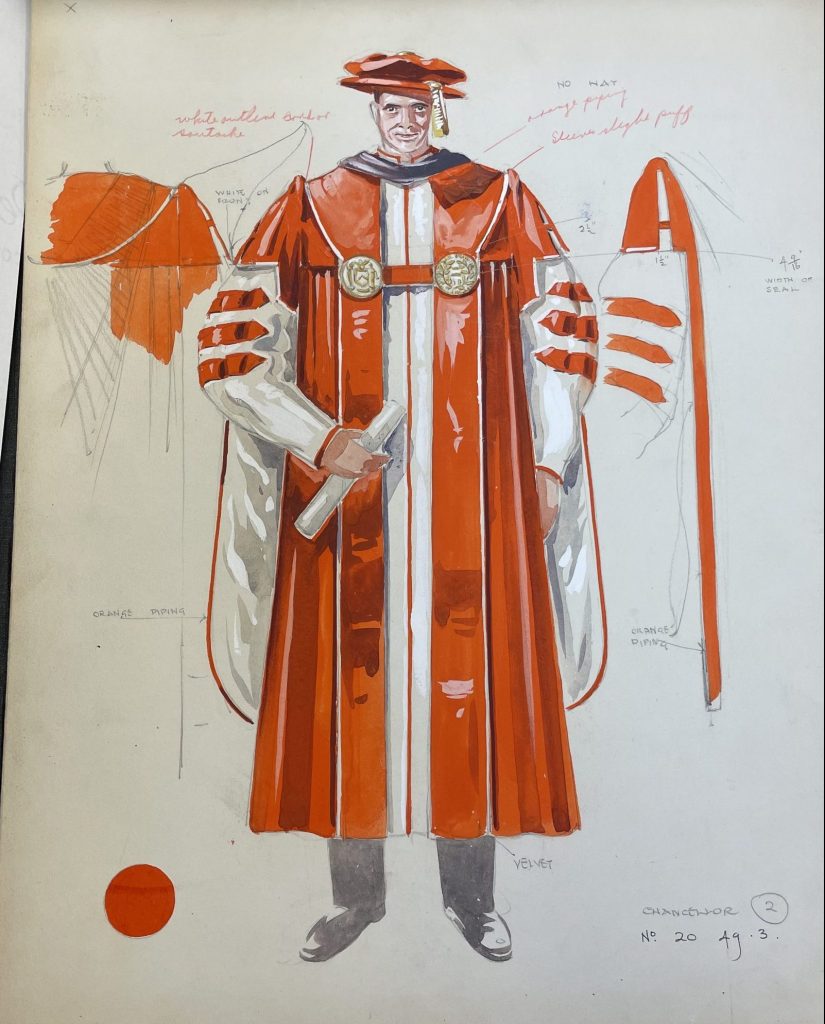
Watercolor sketch of design number 20 of 1949 commencement robe for Chancellor Tolley.
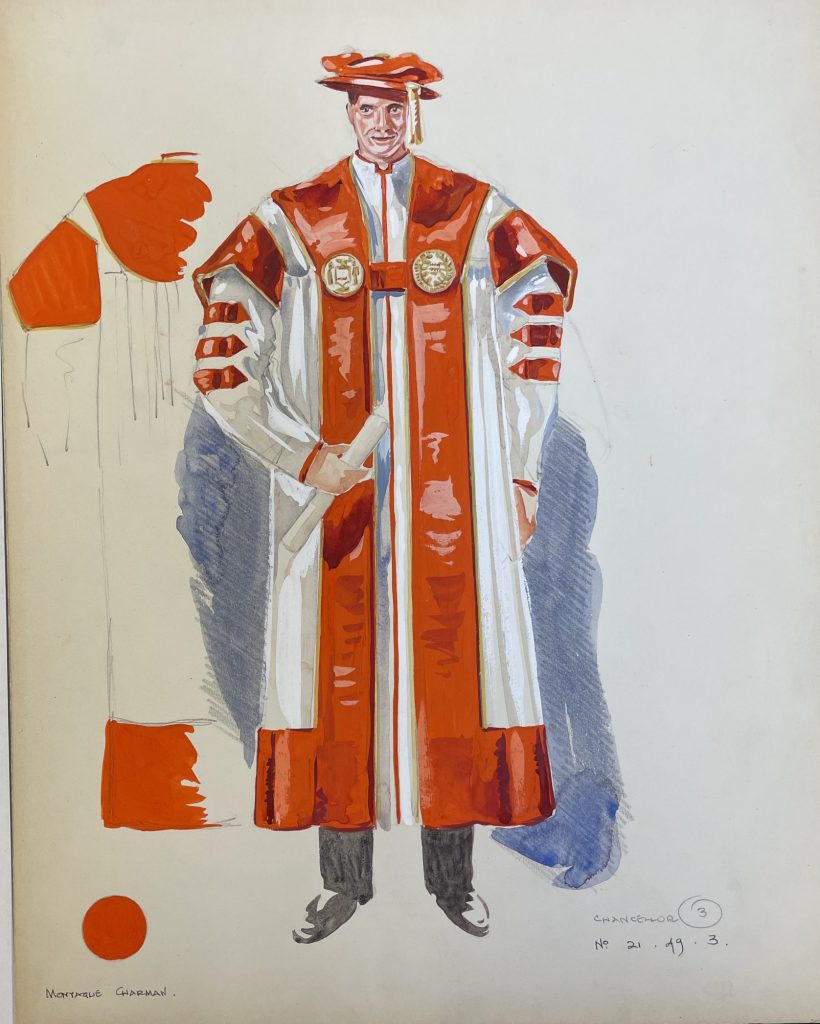
Design number 21 of Chancellor Tolley's 1949 commencement gown.
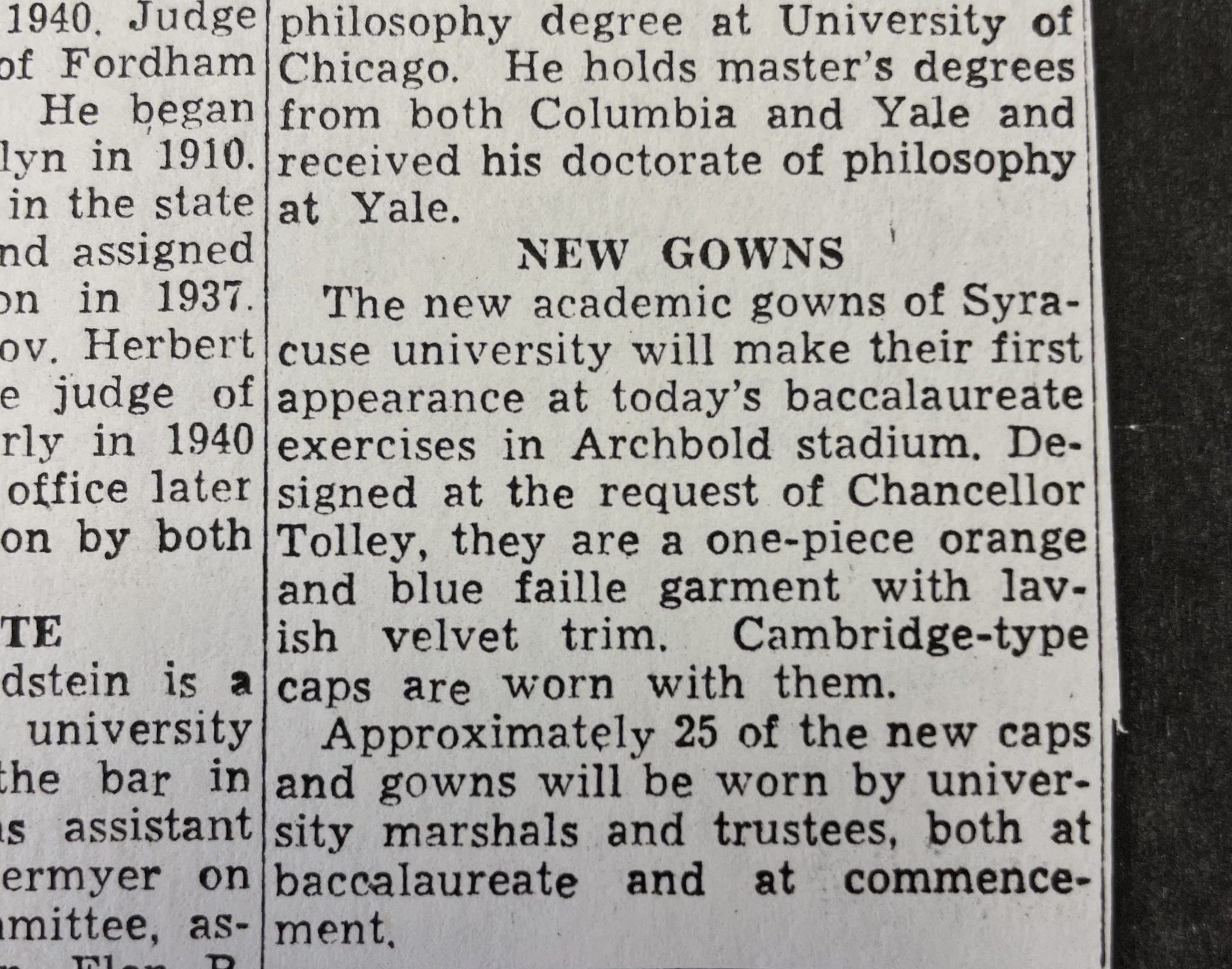
After years of black gowns, William Pearson Tolley, the seventh chancellor of SU, decided it was time to bring color back to commencement in 1949. He commissioned Professor of Design, Montague Charman, to design new gowns for the marshalls and the entire Board of Trustees. One-piece orange and blue faille garments with lavish velvet trim were created and worn in 1949.
This year’s undergraduate gowns are blue with orange trim while the master’s gowns are black. Each degree comes with its own guidelines and specifications. Bachelor’s gowns can be worn open or closed and have long, pointed sleeves; Master’s gowns are worn open and have closed square sleeves with the arm coming out a slit at the forearm, while Doctoral gowns have velvet panels down the front and three bars on each sleeve with a velvet cap and gold tassel. Different iterations of the gown have walked across the stage over the years. In 2012, the commencement regalia for SU and SUNY ESF was made entirely of recycled plastic bottles.
Tassel and hood colors seen this weekend are a visual representation of the degree earned by the wearer. The colors represent more than just a field of study, but life-long passions, the start of careers, and years of hard work.
Here are the official Syracuse University tassel and hood colors, what color will you be wearing?
| Architecture | Lavender | MPA | Peacock Blue |
| Arts & Sciences B.A./M.A. | White | Newhouse | Maroon |
| Arts & Sciences B.S./M.S. | Gold | VPA B.A./M.A. | White |
| Arts & Sciences M.F.A. | White | VPA M.F.A | Brown |
| Falk | Citron | VPA CRS B.A./M.A. | Silver |
| Engineering & Computer Science | Orange | VPA Drama B.A./M.A. | Silver |
| Maxwell B.A./M.A. | White | VPA Setnor B.A./M.A./M.M. | Pink |
| Maxwell B.S./M.S. | Gold | School of Education | Powder blue |
| School of Information Studies | Lemon Yellow | Whitman | Drab (light brown) |
| College of Law | Purple |
